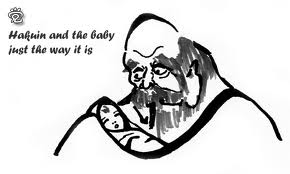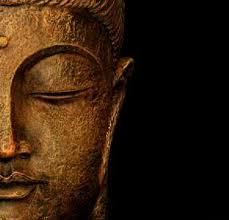 Just as the notion of balance can confuse us sometimes, so can the notion of detachment.
Just as the notion of balance can confuse us sometimes, so can the notion of detachment.
But before turning to that, I have to make a few points as preamble.
First, as I see it, the purpose of life is for us “fragments” of God to know our true essence. Said another way, the purpose of life is for us to move from unconscious awareness of our identity as God, or as “fragments” of God if you prefer that metaphor, or as children of God, to conscious awareness of it.
When each of us realizes our true identity as God in a moment of enlightenment, God meets God. For that meeting is all of life created.
Second, the most generic statement I can make of spiritual practice, if we accept this statement of the purpose of life, is to say that we’re tasked with discerning the Real from the unreal, detaching from the unreal and attaching (or devoting ourselves to) the Real.
Those who follow the path of devotion would love the Real. Those who follow the path of service would serve the Real. Those who follow the path of truth would realize or know the Real. And so on.
The chief difficulty that arises when we think of detachment is that people think that we should detach from the thing itself when what we have to detach from is not the thing itself but our attachment to the thing itself.
The Zen master Hakuin achieved enlightenment, if the story I heard was correct, as a result of hurtling into a mud puddle in the rain. I actually saw an Enlightenment-Intensive leader fall from the last step of a staircase into a mud puddle and laugh and laugh. I presume Hakuin’s experience was similar.
It’s said of Hakuin that someone (a husband, a village elder, I’m not sure who) came to him with a new-born baby and accused him of being the father. They commanded Hakuin to raise the child since it was his. Hakuin said “Ah so,” took the child and raised it.
Several years later, when the baby had become a child, someone else (perhaps the wife, perhaps another village elder) came and said that the mother of the child had confessed that Hakuin was not the father and now wanted the child returned. Hakuin said “Ah so” and returned the child without complaint.
Hakuin’s attitude is cited as a model of detachment.
Werner Erhard would characterize Hakuin’s attitude as letting it be fine if something happens and fine if it doesn’t. Hakuin is equanimous with either outcome.
Another way of speaking about this is to say that we detach from our attachment to a certain outcome, not necessarily to the thing itself.
So for instance, it might be fine that I be wealthy but it might set my spiritual practice back if I were attached to wealth. Evidently all of us can look forward to abundance some day but the trick is not to be attached to it.
And the reason for that is that life has been designed. One of its design principles is that we’re free to desire anything we want but enlightenment comes only from desiring and realizing God.
Just as we don’t necessarily need to detach from the thing itself but just from attachment to the thing itself, so also we don’t detach from everything, just from the unreal.
We are meant to attach ourselves to God. If we do so, by the Law of Attraction, we draw God near to us. Of course everything I just said is metaphorical. We don’t actually draw God to us. That is a Third-Dimensional way of speaking about the matter.
Nevertheless, God is all that we can attach ourselves to without realizing troublesome consequences. “God” has to be interpreted liberally. “God” also means the divine qualities like compassion devotion, wisdom, etc. And it also means God’s saints and sages, who have achieved union with God. So it means God, the godly, the divine, etc.
The rest competes for our love. Everything that is unreal, which is to say temporary, changeable, or lower-vibrational, competes with the Real for our loving attention and does not necessarily lead us to the realization of God. If we were to ask why, in the end, I believe we’d arrive at the conclusion that that is just the way God planned it or designed it.
As long as we attach ourselves to the unreal, so long do we put off the day on which we realize God. God allows us infinite time and the right to choose. S/he constructs universal laws that feed back to us the fruits of our choices and in the face of those returns we may choose again or feel confirmed in our choice. Through interacting with the universal laws, we find ourselves being led inexorably, if over vast stretches of time, brought back to the Divine embrace. The prodigal child returns home. The wayfarer reaches its destination.
Detachment is a simple act. Simply put, it means letting go. It’s no different than the act of dropping a piece of paper into a wastebasket, except that the letting go is done with the will rather than the hands.
But the result is the same. Our connection to the thing is broken. It moves from the center of our attention to the background. All the agendas we had around getting and keeping it are also let go of. And it fades from our minds and hearts.
The more we’re able to let go of things, the more our desires decrease. Our needs get downgraded to wants. Our wants get downgraded to preferences. And our preferences get downgraded to simple choices. Soon we find ourselves OK if certain outcomes eventuate and OK if they don’t. When we arrive at that point we’ve become equanimous – or detached.
via Golden Age of Gaia